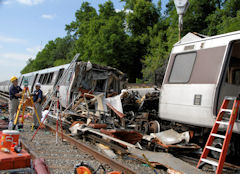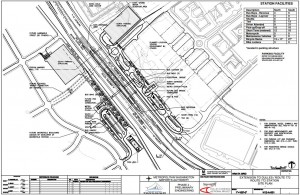
Station site plan for Silver Line METRO station on Route 772 in Loudoun County. (Click for larger image.)
The decision of the Loudoun County Board of Supervisors to fund its $270 million share of the Rail-to-Dulles project by taxing landowners around its two METRO stations could create a prototype for financing transportation projects in the future, argues Jay Corbalis, regional coordinator of LOCUS at Smart Growth America.
“The importance of the vote — and particularly the use of a funding concept called value-capture — goes far beyond Northern Virginia, and could have implications for how transit projects nationwide are funded in coming decades,” writes Corbalis in the D.C. Streets Blog. LOCUS is a national network of real estate developers and investors who advocate sustainable, walkable urban development.
Corbalis touts the potential for the Silver Line to re-shape the auto-oriented pattern of development in Loudoun County into mixed-use, walkable transit districts but acknowledges the difficulty in raising money for Phase 2, which is estimated to cost $2.7 billion. He writes:
The cost of Loudoun County’s contribution to the extension… as well as ongoing contributions to the line’s operations of around $17 million a year starting in 2019, made the vote especially contentious to fiscally conservative county officials. Ultimately, what broke the deadlock amongst commissioners, who were evenly split on the decision until the vote, was the structure of the financing the county would use to fund the project. Rather than increase taxes on all county residents and businesses, the county adopted an innovative funding structure that seeks to capture the value created along the rail line.
To achieve this, the Loudoun Board of Supervisors established special tax districts of commercial and undeveloped properties surrounding the future stations. Properties within a half-mile of the stations would pay a tax of 20 cents per $100 of assessed value. Properties further out would pay less. As noted by the Washington Post, most current residential properties would be excluded from the district. Future residential development would be subject to the tax though.
As Corbalis points out, value-capture financing aligns the costs and benefits of transit funding better than general tax funding. Landowners near transit stations enjoy a big spike in valuations of their property, reaping an economic windfall. Why not tap some of that increased value to help cover the capital costs of building the transportation asset? “Politically, value capture impacts fewer people than broad-based taxes like sales and gas taxes, and those who are affected stand to benefit directly from the investment, making it an easier sell.”
That is precisely the case I have been making on Bacon’s Rebellion for years. I just didn’t call it “value capture.” I’ll have to start doing so from now on.
I do have some quibbles with Corbalis’ piece. He neglects to mention that roughly half the cost of building Phase 2 of the Silver Line will be borne by riders on the Dulles Toll Road — many of whom may never use the METRO at all. The funding structure for the project is still inequitable, creating a massive transfer of wealth from middle-class commuters to well-positioned property owners, construction contractors and METRO riders. Also, he doesn’t acknowledge the risk that the hoped-for development may never occur, with the result that the hoped-for property tax revenue may not materialize.
But his larger point is well taken. Virginia should employ “value capture” financing more aggressively as a tool to finance needed transportation projects — not just transit but roads and highways — in the commonwealth.
— JAB

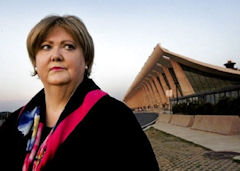
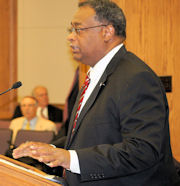
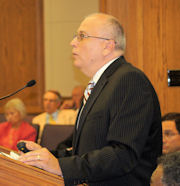

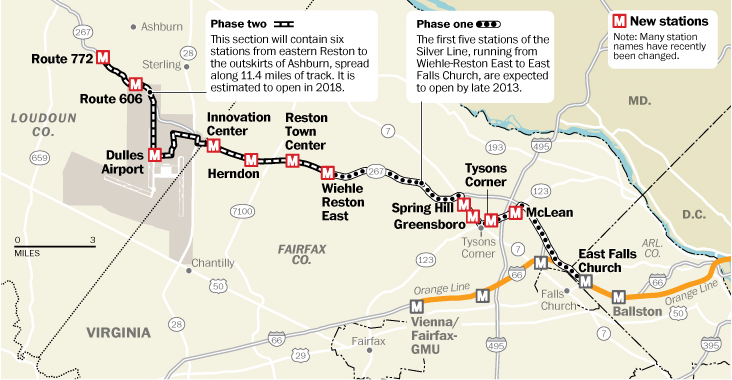

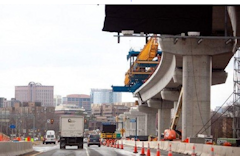 A letter written by three former governors and a U.S. Senator — John W. Warner and Linwood Holton and Democrats Chuck Robb and Gerald L. Baliles — was instrumental in persuading the board of the Metropolitan Washington Airports Authority (MWAA) to reverse its policy favoring Project Labor Agreements in Phase 2 of the Rail-to-Dulles project. I published
A letter written by three former governors and a U.S. Senator — John W. Warner and Linwood Holton and Democrats Chuck Robb and Gerald L. Baliles — was instrumental in persuading the board of the Metropolitan Washington Airports Authority (MWAA) to reverse its policy favoring Project Labor Agreements in Phase 2 of the Rail-to-Dulles project. I published 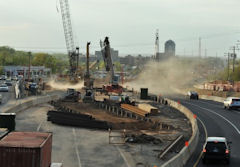 The Metropolitan Washington Airports Authority (MWAA) board of directors voted today to eliminate its preference for Project Labor Agreements in the bidding for Phase 2 of the Rail-to-Dulles project, clearing the way for construction of the project estimated to cost $2.7 billion. Only a negative vote by the Loudoun County Board of Supervisors can sidetrack it now.
The Metropolitan Washington Airports Authority (MWAA) board of directors voted today to eliminate its preference for Project Labor Agreements in the bidding for Phase 2 of the Rail-to-Dulles project, clearing the way for construction of the project estimated to cost $2.7 billion. Only a negative vote by the Loudoun County Board of Supervisors can sidetrack it now.
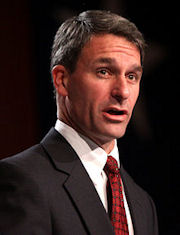
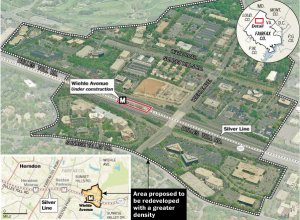

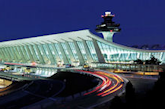 by James A. Bacon
by James A. Bacon